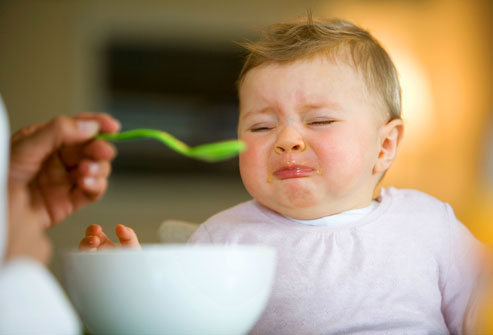 As far back as I can remember, I have been a picky eater. My parents will recount stories of how I ate nothing but cottage cheese, french fries, and green beans for a year or so as a toddler. During my teenage years, when other kids were discovering beer, I could not for the life of me understand how they could drink it, as I thought it tasted absolutely terrible. I did not regularly (and by regularly, I mean “at all”) consume salads until I was 26, after much prodding by my lovely wife and large amounts of Ranch dressing. I found out one of the reasons why eating has been so different for me only three years ago.
As far back as I can remember, I have been a picky eater. My parents will recount stories of how I ate nothing but cottage cheese, french fries, and green beans for a year or so as a toddler. During my teenage years, when other kids were discovering beer, I could not for the life of me understand how they could drink it, as I thought it tasted absolutely terrible. I did not regularly (and by regularly, I mean “at all”) consume salads until I was 26, after much prodding by my lovely wife and large amounts of Ranch dressing. I found out one of the reasons why eating has been so different for me only three years ago.
I am a supertaster, and it turns out the whole I reason I know this is due to coincidence and accidents. First, the science of supertasting began by accident:
In 1931, a DuPont chemist named Arthur Fox was pouring phenylthiocarbamide, a whitish powder, into a bottle when he accidentally let some of it get airborne. Another chemist in the room, C.R. Noller, complained loudly about a bitterness in the air, which gave Fox pause, since he didn’t taste anything. Puzzled, he did what any curious scientist would do: take a lick.
The substance was still tasteless, Fox declared. Noller, not to be outdone, did the same and found it even more bitter than before. This moment of curiosity led to an experiment in which Fox, as he recounted in the Proceedings of the National Academy of Sciences, observed that “men, women, elderly persons, children… Chinese, Germans and Italians were all shown to have in their ranks both tasters and non-tasters.”
Given that only 15% of males are supertasters, it was a fairly significant coincidence that Fox just happened to spill the chemical when Noller was in the room rather than another chemist. My personal understanding of what was odd about my tastes happened through an accident as well.
I did not even have the word “supertaster” in my vocabulary until one of my colleagues was running some demonstrations in one of her undergraduate courses involving the use of chemically-coated strips of paper. We were talking, and she mentioned how she was talking about taste in her class and was testing out who was a “supertaster” by having them touch strips of paper to their tongues. Apparently the supertasters were able to taste something bitter, while normal tasters had nothing. She had some extras, so she showed put a strip in her mouth and said “See, I can’t taste anything. Want to try?” I took another strip, placed it on my tongue, and immediately had a terribly taste invade my body. I ripped out the strip and began spitting into a nearby trash can (because I’m classy like that). She said “Apparently you are a supertaster.” If I hadn’t happened to run into her outside of our offices on the day she happened to be doing that demonstration, I would have never known.
Supertasting seems to be due to genetic variants that in turn case a higher concentration of fungiform papillae on the tongue.

So, I’m a mutant, but I didn’t get cool powers like lasers shooting out of my eyes or psychic powers. Instead, I taste things more intensely. Beer, brussel sprouts, kale, coffee, unsweet teas – I can’t do it. They taste terrible to me! I also seem to be particularly sensitive to other tastes; fresh strawberries, for example, are so intense to me that I only take very small bites of them (the same is true of blueberries and blackberries). Things that are sweet, on the other hand, are AMAZING to me, which helps to explain (in part) the amount of junk in my trunk.
If you think you might be a supertaster, you can actually do a reasonably accurate self-test at home. Then when someone offers you something you don’t like, you can have a scientific reason for declining (rather than just looking like a rude bastard).
